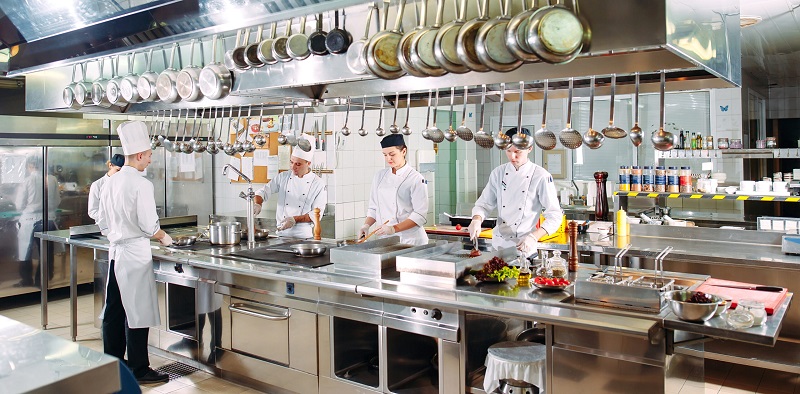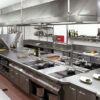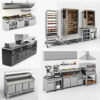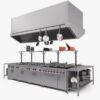- Empty cart.
- Continue Shopping
The Culinary Showdown: Turkish Kitchens vs. the Competition

In the competitive world of industrial kitchens, choosing the right partner is crucial. While Turkish options shine brightly, understanding how they compare to competitors empowers informed decisions. Let’s delve into the key differences and highlight the unique advantages Turkish kitchens offer:
Quality vs. Price:
- Turkish: Renowned for high-grade stainless steel, meticulous craftsmanship, and rigorous quality control, resulting in durable equipment that withstands demanding environments. This quality ensures longer lifespans and minimizes replacement costs.
- Competitors: Some might offer lower initial prices, but often compromise on material quality and construction, leading to higher maintenance and replacement costs in the long run.
Adaptability vs. Standardization:
- Turkish: Offer a wide range of standard equipment and readily embrace customization, tailoring kitchens to specific needs, space constraints, and cultural preferences. This adaptability caters to diverse businesses and cuisines.
- Competitors: Many focus on mass-produced, standardized designs, which may not cater to unique requirements or culinary styles, potentially limiting creativity and efficiency.
Value vs. Cost:
- Turkish: While initial investment might be comparable to European or American brands, the superior quality, durability, and lower maintenance costs translate to a higher overall value proposition in the long run.
- Competitors: Lower initial costs could be offset by higher maintenance needs, shorter lifespans, and potential limitations due to standardized designs, impacting the true value over time.
Customer Focus vs. Transactional Approach:
- Turkish: Emphasize building long-lasting relationships with customers, offering comprehensive after-sales support, including installation, training, and readily available spare parts. This ensures smooth operations and minimizes downtime.
- Competitors: While some offer basic after-sales services, the focus may be solely on the initial sale, leaving customers to navigate challenges on their own, potentially impacting efficiency and satisfaction.
Sustainable Practices vs. Conventional Approach:
- Turkish: Many manufacturers prioritize eco-friendly solutions, utilizing energy-efficient equipment, recycled materials, and waste reduction features. This aligns with growing sustainability demands and reduces environmental impact.
- Competitors: Sustainability practices may not be a core focus, potentially resulting in equipment with higher energy consumption and limited waste reduction features, contributing to a larger environmental footprint.
Unique Advantages of Turkish Kitchens:
- Global Reach, Local Service: Extensive service networks ensure prompt and reliable support worldwide, addressing concerns quickly and minimizing disruption.
- Cultural Hospitality: Emphasis on personalized attention, open communication, and building trust fosters strong partnerships and a positive customer experience.
- Technological Innovation: Seamless integration of smart technology optimizes workflows, enhances data-driven decision making, and personalizes dining experiences.
Choosing the Right Partner:
While price tags might tempt comparisons, remember: true value lies in a combination of quality, durability, adaptability, customer support, and sustainability. Turkish kitchens offer a compelling proposition, exceeding expectations beyond the initial purchase. With their commitment to quality, adaptability, and customer focus, they empower businesses to create culinary masterpieces while prioritizing sustainability and efficiency. So, explore the world of Turkish kitchens, and discover the perfect partner for your unique culinary journey.





